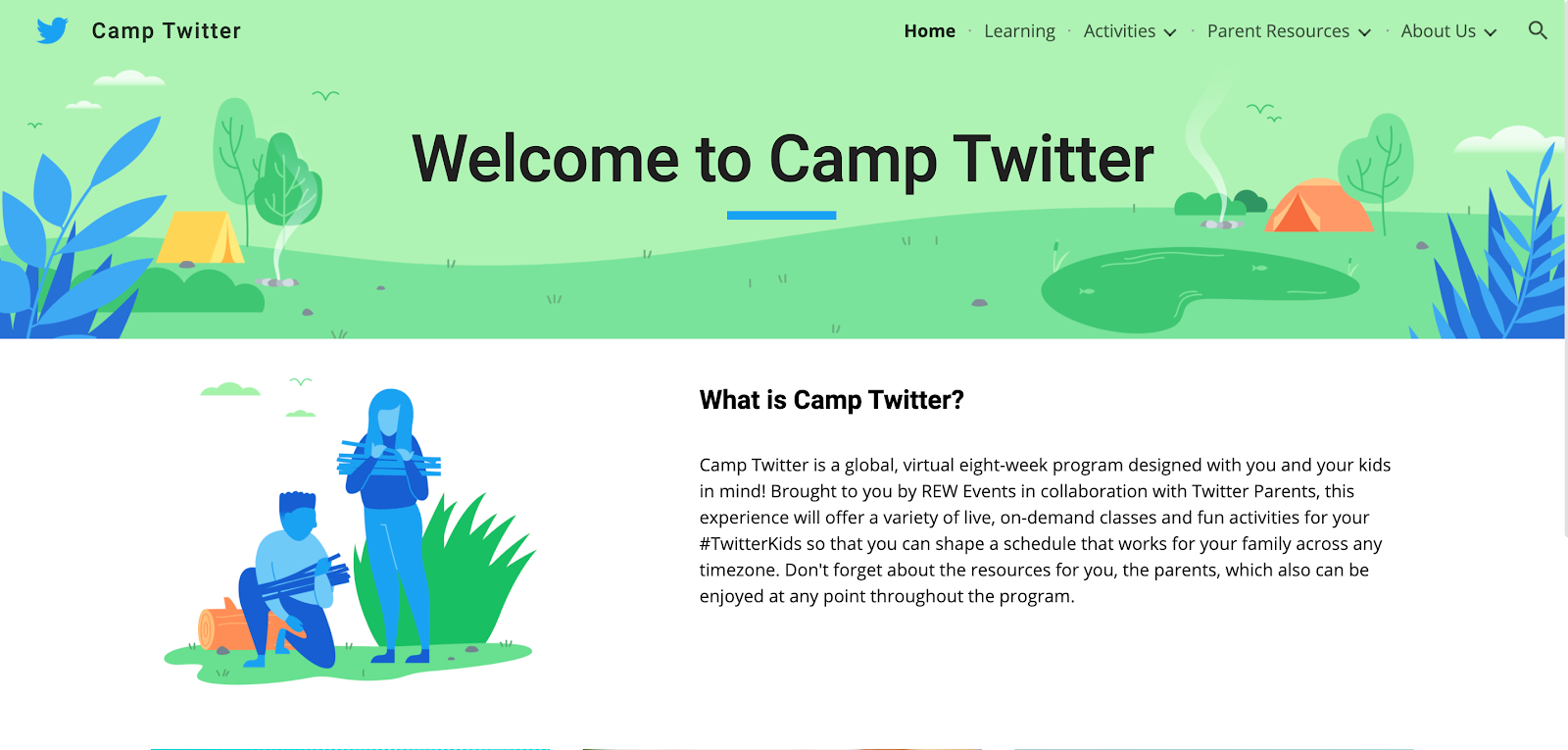Another employer is launching a family-friendly pandemic benefit: a virtual camp to help employees entertain their children.
Financial services firm Sun Life U.S. said this week that in the absence of most summer-camp and daycare options, it’s partnering with Boston Children’s Museum to give its employees access to a virtual summer program.
Related: Read all our coronavirus coverage here.
The program, called Explore It, starts this week and uses online programming to “get kids offline with creative, fun and educational activities to do at home,” the insurance company says. It includes learning modules for children ages 4 to 10 and focuses on themes including imagination, outer space, water and the human body.
“We understand that keeping young children occupied at home has been challenging for our employees during the pandemic, so we want to help by providing something that will entertain and engage kids and the whole family,” says Dan Fishbein, president of Sun Life U.S. “We also know there are many more families in need of home-based summer activities for their children.”
 Sun Life’s move follows Twitter’s announcement last week that it was rolling out a free, virtual, eight-week program, dubbed Camp Twitter, to its employees. Classes focus on topics of parents’ choice, as well as activities like cooking lessons, yoga classes and music sessions. Parents, meanwhile, can attend the camp’s livestream webinars led by psychologists and health experts, as part of Twitter’s partnership with its wellness providers Happify Health and Modern Health. The social media company also says it will provide guidance on “how to access one-on-one sessions and tips and tools to help parents overcome challenges of e-learning while working from home.”
Sun Life’s move follows Twitter’s announcement last week that it was rolling out a free, virtual, eight-week program, dubbed Camp Twitter, to its employees. Classes focus on topics of parents’ choice, as well as activities like cooking lessons, yoga classes and music sessions. Parents, meanwhile, can attend the camp’s livestream webinars led by psychologists and health experts, as part of Twitter’s partnership with its wellness providers Happify Health and Modern Health. The social media company also says it will provide guidance on “how to access one-on-one sessions and tips and tools to help parents overcome challenges of e-learning while working from home.”
Tracy Hawkins, vice president of real estate and workplace and remote experience at Twitter, told HRE the camp recognizes the “added pressure and responsibility parents have taken on at home during this unprecedented time.”
Related: Twitter launches virtual camp for employees and their children
Likewise, David Healy, senior vice president of group benefits at Sun Life U.S., notes that employees have been stressed about the absence of school and daycare options for kids during the summer months. The camp is one way to help ease the stress of those employees, he says.
[click_to_tweet tweet=”.@SunLifeUS partnered with @BosChildMuseum to offer #employees’ children #virtual #SummerCamp. @mayereditor has more on this #EmployeeEngagement #WorkLifeBalance benefit ” quote=”Tweet me” theme=”style3″]
“Employee mental health and wellbeing is just as important to us as physical health, and we hope that our employees and their kids will be able to enjoy summer at home more with these activities,” Healy says.
A handful of employers have focused on helping working parents through the pandemic, and virtual camps, while rare, are among the ways to help, notes Julie Stich, vice president of content at the International Foundation of Employee Benefit Plans.
“Employers are providing tools and support systems in any way they can,” she says. “One option could be virtual camps for children, offering age-appropriate projects requiring little parental supervision, enrichment classes, exercise programs and virtual social events like campfire singalongs.” The foundation surveyed employers recently and found that among companies’ strategies for helping working parents are facilitated mental health breaks like virtual yoga classes or mindfulness sessions, after-work virtual social hours and online forums dedicated to parenting support.
In general, she notes, challenges for working parents are especially tough–and employers shouldn’t ignore them. “They’ve become a full-time teacher and caregiver while also working full-time,” Stich says. “It’s exhausting and can leave workers feeling like they’re failing on both fronts.”
While virtual camps are one way to help, Stich warns employers need to continue to be flexible and understanding of the challenges faced by employees during the pandemic.
“Because virtual camps will not alleviate all caregiving pressures, it’s important that managers continue to be understanding of work-life challenges,” she says. “Personal outreach efforts that acknowledge the challenges and show appreciation for employees’ work are crucial.”

